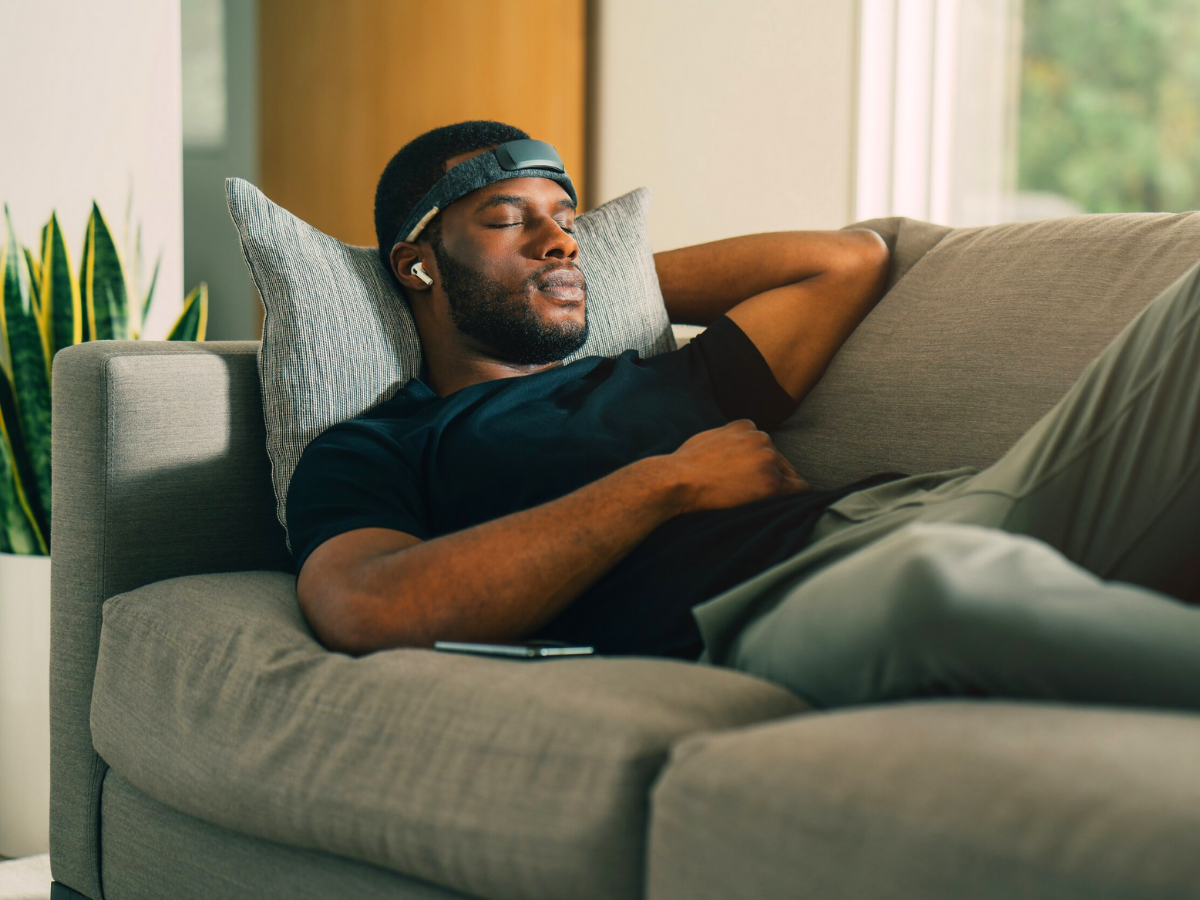Technological advancements are increasingly tracking and monitoring every area of life. Sleep quality, heart rate, diet, and physical activity can all be extensively monitored using smart devices. The latest inevitable addition to this trend is tracking stress levels using a ‘smart headband’.
A smart headband is a headband that contains electrochemical sensors to monitor and process your mental state and brain activity. When wearing the headband, the sensors detect electrical activity in the brain and use Artificial Intelligence to quantify this activity into a score. A low score means that the brain is distracted, busy, and stressed. In contrast, a high score means that the brain is focused, calm, and mindful.
Smart headbands are predominantly being marketed as a way to assist and improve meditation and mindfulness. One headband developer, FocusCalm, explains that ‘with the positive feedback you get from FocusCalm, your brain learns to prefer being relaxed and alert.’
Utilising neurofeedback
The headband depends on the idea of neuroplasticity. This means that the brain is dynamic and has the ability to change, grow, and reorganise when undertaking activities such as meditation and brain games. The headband is pitched as a more efficient and effective way to engage in these activities, suggesting that real-time neurofeedback can improve results. This is because receiving positive or negative neurofeedback allows users to trial what works best for them. For example, it can help dictate the position or environment that optimises brain performance for that particular individual.
The headband also helps users to track their brain activity over time. This provides an incentive to undertake mindful activities and produces a quantifiable reward that helps users visualise how they are improving, ultimately helping them to stay motivated in pursuing mindfulness. This is particularly beneficial for mindful activities, where potential results can be hard or abstract to measure and quantify, and may therefore result in disillusionment.
True mindfulness
Introducing neurotech to mindfulness has seen some resistance. Firstly, mindfulness is built on a foundation of self-acceptance, listening to the body, and understanding one’s inner self. Having a headband that tells you whether you are calm or not may defy or distract from this.
‘Mindfulness training and meditation might be one of the areas where I see very little room that AI can improve traditional ways of practising’, said Professor Sandra Watcher, a leading artificial intelligence expert at Oxford University, ‘in addition, there is no such thing as “ideal relaxation” or “problematic stress level scores” because every person is very different.’
Secondly, as noted by Professor Watcher, another important downfall to smart headbands is that demand for performance tracking gadgets is more likely to come from people that experience anxiety over their performance in the first place. Extensively tracking brain activity and data may exacerbate this issue – not all brains will fit the neurotypical norm. This could heighten stress levels and disincentivise users from exploring mindfulness fully.
Not for everyone
Overall, the smart headband may provide an effective means to increase motivation and incentivise individuals to engage in more neuroplastic brain activities. It may be especially beneficial for beginners to understand how environmental factors positively or negatively influence their calmness levels and optimise their mindfulness experiences.
However, it also symbolises a technological intrusion on one of the only activities left that emphasise liberation from external factors and, specifically, technology. Adding an element of objective quantification and measurement may distract from the true purpose of being mindful, which is to focus on one’s inner self rather than striving to meet external expectations. Moreover, with the headbands starting at around £150 – not including the app membership – it won’t be a luxury everyone can afford. Nevertheless, mindfulness has existed for over 1,000 years without AI. Technology most certainly is not, and should not be, an essential part of a mindful lifestyle.
About the author: Jessica Culnane is a contributing Features Writer with in-depth knowledge of policy, politics, and economics. She’s interested in technological advancements, business developments, data, and culture.
Recommended for you

Antidepressant Prescribing at Six-Year High
More people are taking antidepressants than ever. Is this a dark sign of the times or an indication that mental health stigma is changing?

Can AI be Used to Determine Cancer Recurrence?
When cancer patients go into remission, they often worry about it coming back. AI can now help identify those at risk of cancer recurrence.

Pegasus – Still a Threat to the UK?
The notorious Pegasus spyware has been misused to exploit vulnerabilities in devices, even those kept within the walls of Number 10.
Trending

Drug Decriminalisation: Could the UK Follow Portugal?
Portugal’s drug decriminalisation has reduced drug deaths and made people feel safe seeking support. Would the UK ever follow suit?

Calling All Unvaccinated UK Adults
With Covid cases rising, the NHS is urging the 3 million UK adults who remain unvaccinated to come forward.




